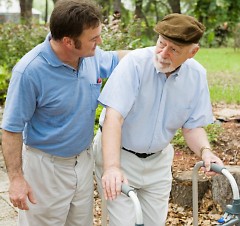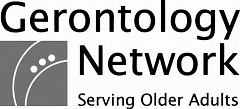An estimated 5.3 million Americans of all ages have Alzheimer’s disease. This figure includes 5.1 million people aged 65 and older and 200,000 individuals under age 65 who have younger-onset Alzheimer’s.
• One in eight people aged 65 and older (13 percent) have Alzheimer’s disease.
• Every 70 seconds, someone in America develops Alzheimer’s. By mid-century, someone will develop the disease every 33 seconds.
Dementia: Definition and Specific Types
Dementia is characterized by the loss of or decline in memory and other cognitive abilities. It is caused by various diseases and conditions that result in damaged brain cells. To be classified as dementia, the following criteria must be met:
• It must include decline in memory and in at least one of the following cognitive abilities:
1) Ability to generate coherent speech or understand spoken or written language
2) Ability to recognize or identify objects, assuming intact sensory function
3 ) Ability to execute motor activities, assuming intact motor abilities, sensory function and comprehension of the required task
4 ) Ability to think abstractly, make sound judgments and plan and carry out complex tasks
• The decline in cognitive abilities must be severe enough to interfere with daily life.
Alzheimer’s disease is the most common type of dementia. It accounts for an estimated 60–80 percent of cases. Difficulty remembering names and recent events is often an early clinical symptom; apathy and depression are also often early symptoms. Later symptoms include impaired judgment, disorientation, confusion, behavior changes and difficulty speaking, swallowing and walking.
Vascular dementia (also known as multi-infarct or post-stroke dementia or vascular cognitive impairment) is considered the second most common type of dementia. Impairment is caused by decreased blood flow to parts of the brain, often due to a series of small strokes that block arteries. Symptoms often overlap with those of Alzheimer’s, although memory may not be as seriously affected.
Symptoms of Alzheimer’s Disease
Alzheimer’s disease can affect different people in different ways, but the most common symptom pattern begins with gradually worsening difficulty in remembering new information. This is because disruption of brain cells usually begins in regions involved in forming new memories. As damage spreads, individuals experience other difficulties. The following are warning signs of Alzheimer’s:
• Memory loss that disrupts daily life
• Challenges in planning or solving problems
• Difficulty completing familiar tasks at home, at work or at leisure
• Confusion with time or place
• Trouble understanding visual images and spatial relationships
• New problems with words in speaking or writing
• Misplacing things and losing the ability to retrace steps
• Decreased or poor judgment
• Withdrawal from work or social activities
• Changes in mood and personality
In advanced Alzheimer’s, people need help with bathing, dressing, using the bathroom, eating and other daily activities. Those in the final stages of the disease lose their ability to communicate, fail to recognize loved ones and become bed-bound and reliant on 24/7 care. The inability to move around in late-stage Alzheimer’s disease can make a person more vulnerable to infections, including pneumonia (infection of the lungs).
Benefits of Early Detection To the Patient and Caregiver
There are many benefits to early detection. The patient and his or her caregiver can be involved in discussions regarding diagnosis and prognosis and be advised on the help and support available from health, social care and voluntary agencies. They can make financial and legal plans for when the patient no longer retains the capacity to make such plans. Early detection and treatment of dementia is associated with improved quality of life in patients. Caregiver knowledge of and access to counseling sessions, regular support group meetings and education all help to improve the physical and mental health of caregivers and allow their loved one to stay at home and independent longer.
Resources in Grand Rapids:
"Know the Ten Warning Signs of Alzheimer's Disease" Presentation
Date: Monday, July 18, 2011
Time: 11:30 AM
Location: Calvary Church
707 East Beltline NE
Grand Rapids MI 49525
This presentation includes videos of people with very early-stage Alzheimer’s sharing about their experiences living with the disease and provides information regarding:
- The ten warning signs of Alzheimer’s disease
- What to do next if you are experiencing signs of Alzheimer’s or concerned about someone else
- What is involved in getting a diagnosis
- The benefits of early detection
This presentation will be part of the Confident Caregivers Support Group, held at Calvary Church. For more information or directions, please call Calvary Church at (616) 956-9377. For more information about the warning signs of Alzheimer’s, free online classes, and for useful tips on what to ask your doctor, visit www.alz.org/10signs.
Early Stage Dementia Support Group
Dates: Wednesdays, October 5-November 16
Time: 10:00 AM-12:00 PM
Location: John Knox Presbyterian Church
4150 Kalamazoo Avenue SE
Grand Rapids, MI 49508
The Early Stage Dementia Support Group provides individuals and their care partners:
- An opportunity to gain support from others who are living and learning to cope with progressive memory loss
- Experts to listen and answer questions and a connection to vital community resources that can help improve the quality of life for both the person with memory loss and their care partner
The early stage dementia support group is for individuals who have the ability to talk about their diagnosis and the experience of living with memory loss, sit in a group for 45-50 minutes, listen to others and respond in a socially appropriate manner and work with their care partner to plan for the future.
(Intake Screening Required) * if you or someone close to you has recently been diagnosed with a progressive memory loss disorder such as Alzheimer’s disease or other dementia, contact the Alzheimer’s Association at 616-459-4558.
Another great resource in our community is offered through the Area Agency on Aging of West Michigan. Lunch is provided, and COMPLIMENTARY RESPITE CARE IS PROVIDED while the caregiver attends the classes. Mileage reimbursement is available for those caregivers traveling from outside Kent County.
Creating Confident Caregivers
Dates: August 19, 26, Sept. 2, 9 and 23
Time: 11:30 a.m. to 3:00 p.m. (lunch provided)
Location: Area Agency on Aging of Western Michigan
1279 Cedar, NE, Grand Rapids, MI
Call 222-7014 to register for the classes
What is Creating Confident Caregivers?
- Program for military veterans and their families: either the caregiver or the care recipient must be a veteran
- Education for caregivers: provides information and skill development to manage stress and increase effective caregiving
- Proven successful: uses the Savvy Caregiver Program, a proven program, for family members caring for a loved one with dementia at home.
- On-going support: three hour sessions are held once a week for four weeks at no charge to participants through a federal grant
These classes are offered through an 18 month grant from the Administration on Aging. They are provided through a partnership between AAAWM, the Alzheimer’s Association, and the G.R. VA Outpatient Clinic.
The Alzheimer’s Association organizes support groups in many locations that are free and open to the public. These provide mutual support, give practical information you can use, help you learn more about caregiving and Inform you of community resources. Gerontology Network hosts one of these support groups at our Adult Day Center for caregivers which also provides RESPITE services for the loved one of those attending the group.
Gerontology Network – Care Tree Support Group
800 East Beltline NE, Grand Rapids, MI 49525
Contact: Clayton Brillhart (616) 363-4101
Semi-monthly: 1st & 3rd Thursdays 12:30-2:30 PM
*Respite available: call Audrey at 464-3665 in advance to
make arrangements
24/7 Helpline: 1-800-272-3900
For more groups and locations Click Here. For more information call our Outreach & Assistance specialists! Call 616-456-6135 or email [email protected] for additional information.
Disclosure: Sources: Alzheimer’s Association, Alzheimer’s Disease Facts and Figures 2010. To view the full report click here.
http://www.touchneurology.com/files/article_pdfs/passmore.pdf
The Rapidian, a program of the 501(c)3 nonprofit Community Media Center, relies on the community’s support to help cover the cost of training reporters and publishing content.
We need your help.
If each of our readers and content creators who values this community platform help support its creation and maintenance, The Rapidian can continue to educate and facilitate a conversation around issues for years to come.
Please support The Rapidian and make a contribution today.



